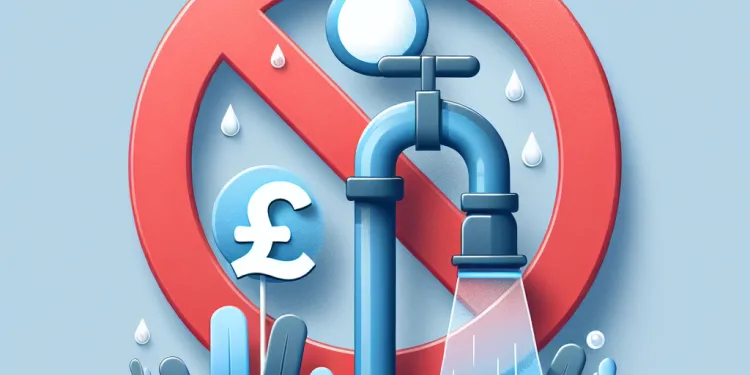
Find A Professional
More Items From Ergsy search
-
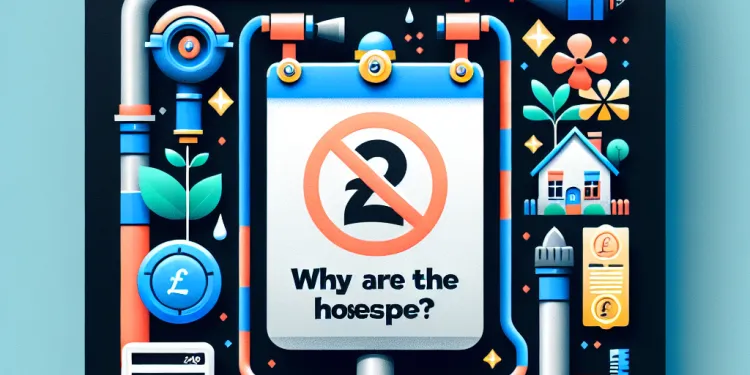
Why are hosepipe bans imposed?
Relevance: 100%
-
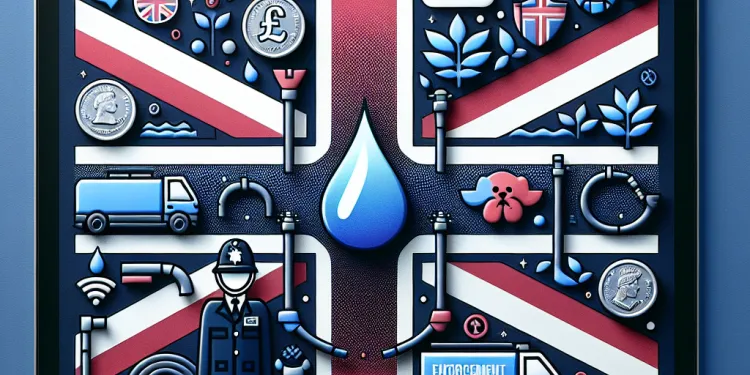
Who enforces hosepipe bans?
Relevance: 97%
-
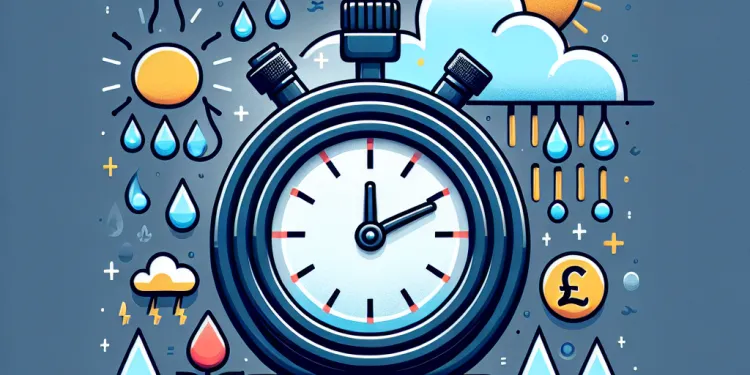
How long do hosepipe bans last?
Relevance: 95%
-

Is a hosepipe ban legally enforceable?
Relevance: 90%
-
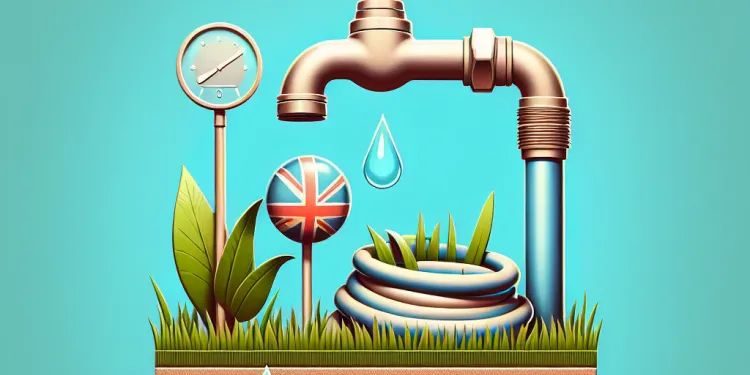
What is a hosepipe ban?
Relevance: 90%
-

Is a hosepipe ban legally enforceable?
Relevance: 89%
-
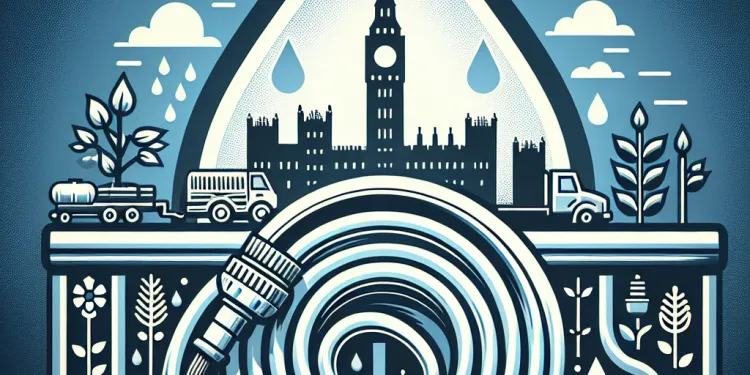
How are hosepipe ban restrictions communicated to the public?
Relevance: 88%
-

Do online banks have lower fees than traditional banks?
Relevance: 85%
-

Are there any exceptions to a hosepipe ban?
Relevance: 82%
-

Can water companies enter my property to enforce a hosepipe ban?
Relevance: 79%
-
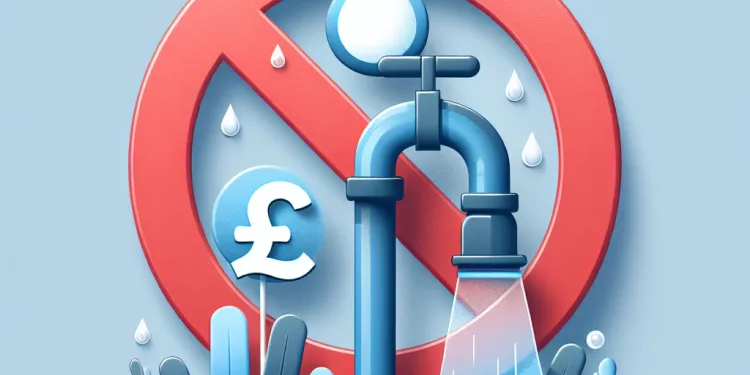
What happens if a hosepipe ban is ignored?
Relevance: 78%
-

How can I check if there is a hosepipe ban in my area?
Relevance: 76%
-
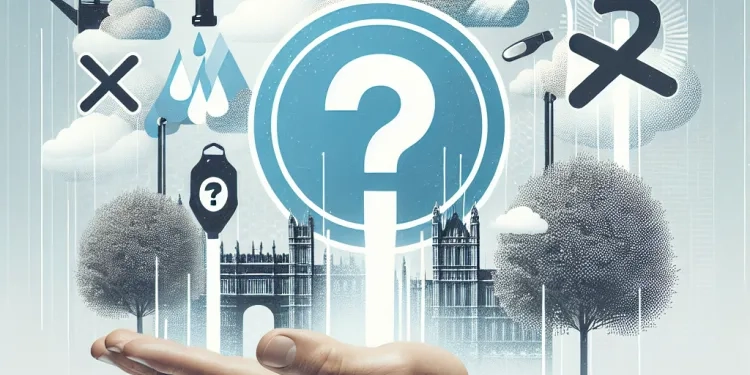
Is using a pressure washer allowed during a hosepipe ban?
Relevance: 76%
-

Do hosepipe bans apply to public parks and gardens?
Relevance: 75%
-
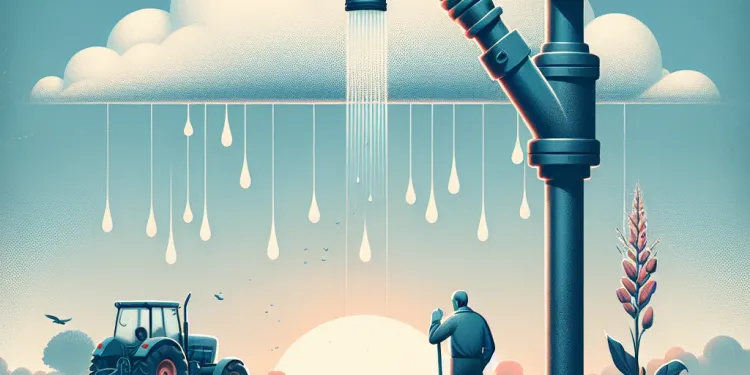
How do hosepipe bans affect farmers?
Relevance: 72%
-

Can businesses be exempt from hosepipe bans?
Relevance: 67%
-

Do online banks offer investment options?
Relevance: 67%
-

Voice banking service helps people live with motor neurone disease
Relevance: 61%
-

The Rise of Community Food Banks: Combating Hunger Locally
Relevance: 59%
-

How to apply wet wrap bandaging to the head and face area.
Relevance: 51%
-

Is hay fever more common in urban areas?
Relevance: 50%
-

Are online banks like Monzo and Revolut regulated?
Relevance: 49%
-

Rise in Food Bank Usage Amid Economic Challenges
Relevance: 48%
-

Can hosepipes be used for irrigation during a ban?
Relevance: 45%
-
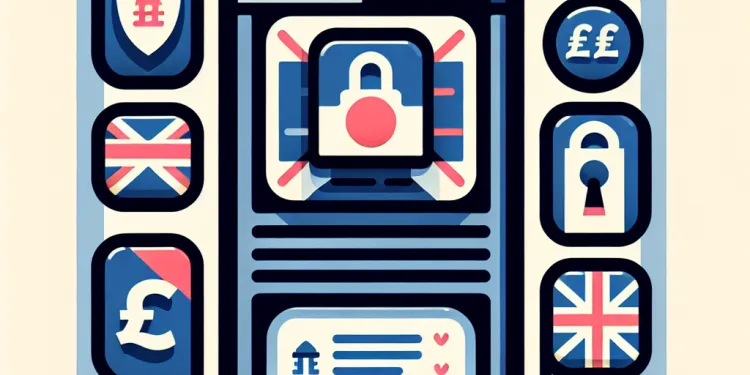
Are online banks like Monzo and Revolut safe?
Relevance: 44%
-

NHS Dental Charges Explained
Relevance: 44%
-

Is it easy to switch banks to Monzo or Revolut?
Relevance: 41%
-
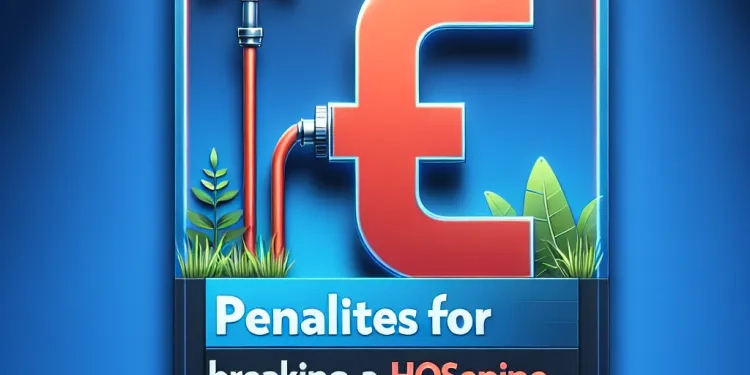
What are the penalties for breaking a hosepipe ban?
Relevance: 38%
-

Can I report a neighbor for using a hosepipe during a ban?
Relevance: 37%
-
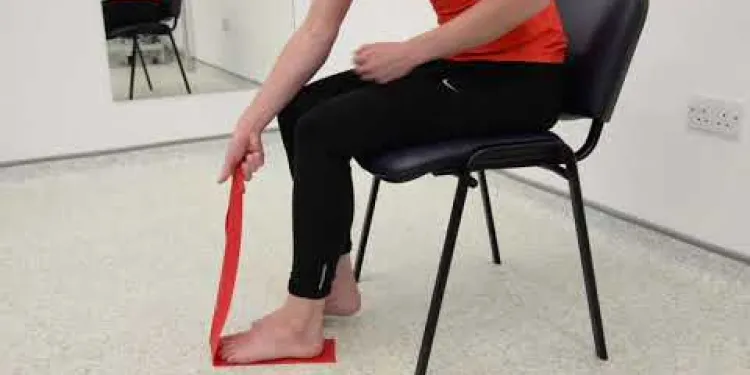
Plantar Fascia Intrinsic Theraband Strengthening Exercise
Relevance: 35%
-

Major Banks Announce Changes in Interest Rates: Are You Affected?
Relevance: 34%
-
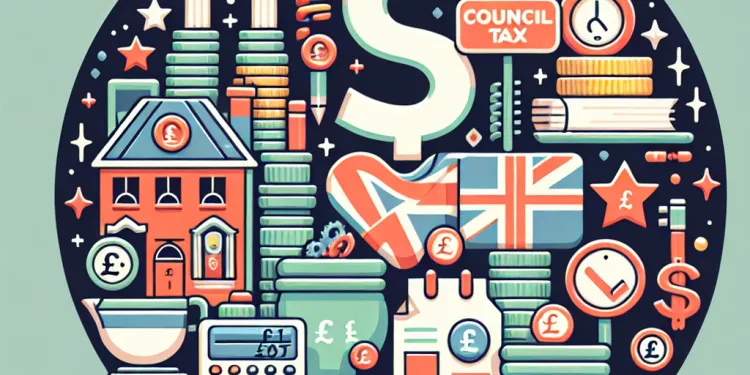
How does council tax relate to wealth in the UK?
Relevance: 32%
-
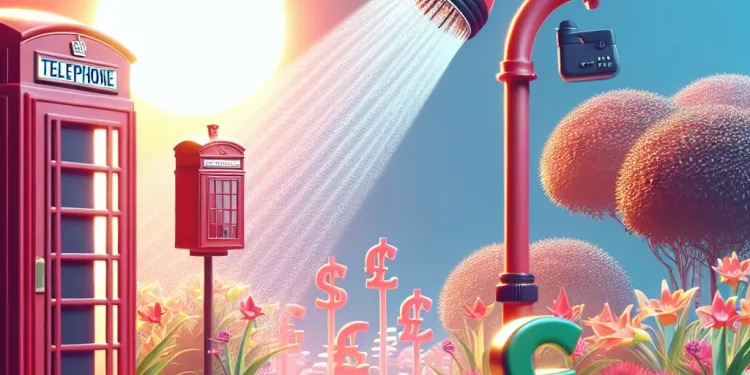
Do hosepipe bans apply to all regions in a country?
Relevance: 31%
-

Can I receive the payment if I live abroad?
Relevance: 29%
-

Can I use Monzo or Revolut for everyday banking?
Relevance: 29%
-
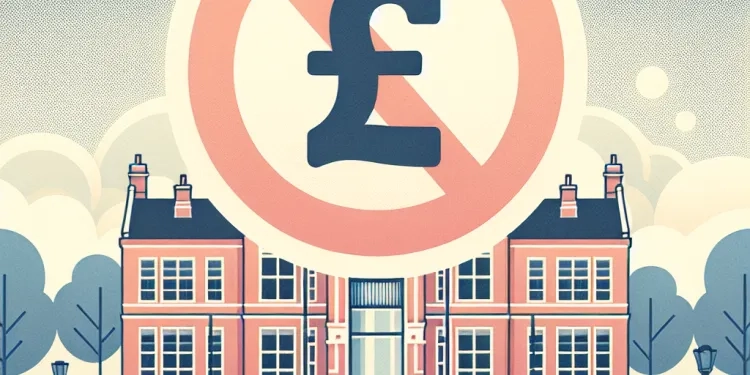
Calls to Ban Vapes Near School Grounds Gain Momentum
Relevance: 25%
-

Why do interest rates rise and fall?
Relevance: 23%
-

www.DebtMadeSimple.co.uk - Trust Deeds, Debt Arrangement Schemes, and Bankruptcy Services
Relevance: 23%
-

How to apply wet wraps
Relevance: 20%
-

UK Study Links Poor Air Quality to Increased Asthma Cases in Urban Areas
Relevance: 19%
Introduction to Hosepipe Bans
Hosepipe bans, also known as water-use restrictions, are measures implemented by water companies in the UK to prevent water wastage during drought periods. These bans are usually put in place when water reservoirs reach critically low levels, and they aim to conserve water for essential uses. Typically, these restrictions prohibit the use of hoses for watering gardens, filling pools, washing cars, and other non-essential activities. Understanding the implications of ignoring such bans is crucial for both compliance and environmental responsibility.
Legal Consequences
Ignoring a hosepipe ban is a legal violation under the United Kingdom's water use regulations. If individuals or businesses continue to use hosepipes during a ban, they could face penalties enforced by the respective water authority. Typically, fines for non-compliance can amount to £1,000 per offense. These fines are meant to deter irresponsible water use and ensure community-wide participation in conserving water resources during shortages. Persistent offenders may face further legal action, which could include increased fines or other penalties as deemed necessary by the courts.
Environmental Impact
Disregarding hosepipe bans has significant environmental consequences. Water conservation is critical during drought periods to maintain levels in reservoirs and aquifers, which are essential for public water supply and ecological balance. Overusing water during these times could lead to more severe water shortages, potentially affecting not only household supplies but also agriculture and wildlife. Depleting water resources can lead to long-term ecological damage, disrupting habitats and biodiversity. Additionally, it exacerbates the effects of drought conditions, making recovery more challenging.
Community and Social Responsibility
Ignoring a hosepipe ban undermines community efforts to safeguard resources during critical times. Collective responsibility plays a vital role in water conservation. When individuals flout these restrictions, they not only risk legal action but also compromise the effectiveness of the ban for everyone. Ensuring compliance helps to distribute available water resources more equitably, preventing severe shortages and ensuring that essential services continue to operate smoothly. By adhering to the ban, individuals contribute to a broader effort of sustaining the environment and supporting their community.
How to Adapt
To comply with a hosepipe ban, individuals can adopt various water-saving measures. Alternatives to hosepipes include using watering cans for plants, employing rain barrels to collect rainwater, and opting for water-efficient devices and methods. Mulching gardens can help retain soil moisture, reducing the need for watering. Informing and encouraging neighbors to follow suit can amplify the positive effects of these measures. By adopting these practices, individuals can effectively contribute to water conservation efforts, helping to alleviate the pressure on water supplies during dry periods.
Conclusion
In conclusion, ignoring a hosepipe ban can lead to significant legal, environmental, and social repercussions. By understanding the importance of these restrictions and adapting water usage habits, individuals can play a key role in preserving water resources during droughts. This collective effort is crucial for ensuring sustainable water management and protecting the environment for future generations.
Introduction to Hosepipe Bans
A hosepipe ban is a rule that stops people from using hoses to save water. Water companies in the UK use these rules when there is very little rain. This helps to stop wasting water. You cannot use hoses for things like watering gardens, filling pools, or washing cars. It is important to understand why these rules matter and to follow them to help the environment.
Legal Consequences
Breaking a hosepipe ban is against the law in the UK. If you use a hose when there is a ban, you can get into trouble. You might have to pay a fine of up to £1,000. These rules help to make sure everyone saves water. People who keep breaking the rules might have to face even bigger fines or more punishments.
Environmental Impact
Not following a hosepipe ban can hurt the environment. Saving water is very important when there is a drought, which means there is not enough water. If we use too much water, it can lead to very low levels in our reservoirs and harm nature. This can cause problems for plants and animals and make it harder for everyone to have enough water.
Community and Social Responsibility
Ignoring a hosepipe ban affects the whole community. We all need to work together to save water. When some people do not follow the rules, it can make it harder for others to have enough water. Following the rules helps make sure everyone has what they need. By following the ban, you help your community and the environment.
How to Adapt
There are ways to save water without using a hose. You can use a watering can for plants or collect rainwater in barrels. Mulching your garden helps keep plants wet so you do not need to water them as much. Tell your neighbors to do the same, so everyone helps save water. By doing these things, you help save water during dry times.
Conclusion
In short, not following a hosepipe ban can cause trouble with the law and the environment. By using less water and helping others do the same, you can make a big difference. It is important for everyone to work together to save water and protect the environment for the future.
Frequently Asked Questions
What are the consequences of ignoring a hosepipe ban?
Ignoring a hosepipe ban can result in fines and legal action from local water authorities.
What is the typical fine for breaching a hosepipe ban?
The typical fine for breaching a hosepipe ban can be up to £1,000.
Is a warning issued before a fine is imposed for breaking a hosepipe ban?
Some authorities may issue a warning first, but this is not guaranteed. It depends on local policies.
Can a hosepipe ban affect a business?
Yes, businesses that rely on water for certain operations might also face restrictions and should check if they are exempt.
Who enforces hosepipe bans?
Local water companies enforce hosepipe bans and have the authority to impose fines.
Can you legally challenge a hosepipe ban fine?
You can contest a hosepipe ban fine if you believe it was unfairly issued, typically through legal advice or mediation.
What should I do if I see someone breaking a hosepipe ban?
You can report it to your local water company, but approaches vary, and it's not necessary to confront the individual.
Are there any exceptions to hosepipe bans?
Yes, exemptions are often made for disabled individuals, health and safety reasons, and certain commercial operations.
How can you check if a hosepipe ban is in place?
Check your local water company’s website or contact them directly for the most accurate information.
How long do hosepipe bans typically last?
Hosepipe bans last as long as necessary to address water scarcity, potentially spanning weeks or months.
Do hosepipe bans apply during all times of the day?
Yes, hosepipe bans typically apply 24/7, although specifics can depend on local regulations.
What are alternatives to using a hosepipe during a ban?
Alternatives include using watering cans, water butts, or recycled water for irrigation.
Will water companies compensate for loss due to a hosepipe ban?
Typically, water companies do not compensate for loss or inconvenience caused by a hosepipe ban.
Is it illegal to use a hosepipe during a ban within private property?
Yes, using a hosepipe in any context that's not exempt during a ban is typically illegal.
How are hosepipe bans publicized?
Hosepipe bans are publicized through local media, water company communications, and their websites.
Does a hosepipe ban apply to watering new lawns and plants?
Usually, hosepipe bans include watering new lawns and plants, though some exemptions may apply.
Are there any legal defenses against hosepipe ban fines?
Legal defenses might include valid exemptions, incorrect fine issuance, or improper notification of the ban.
Why are hosepipe bans enforced?
Hosepipe bans are enforced to conserve water during droughts or periods of water scarcity.
Can repeated offences lead to higher penalties?
Yes, repeated offenses can potentially lead to higher fines or further legal action.
Are communal gardens included in hosepipe bans?
Yes, communal gardens are typically included unless specific exemptions apply, such as those for public services.
What happens if you don’t follow a hosepipe ban?
If you use a hose when there is a ban, you could get in trouble. You might have to pay money as a fine. It is important to save water when there is a ban.
Helpful Tips:
- Use a watering can instead of a hose.
- Ask someone you trust if you don’t understand the rules.
If you don't follow the rule about not using a hose, you can get in trouble.
You might have to pay money or deal with the law because of it.
The water people in charge can do this if you break the rule.
A tip: Use a watering can instead of a hose during a ban.
How much do you pay if you break the hosepipe rules?
If you use a hosepipe when you should not, you might have to pay money. This is called a fine.
You might have to pay up to £1,000.
To help remember not to use a hosepipe, you can set a reminder on your phone or put a note on your tap.
If you use a hosepipe when you're not allowed, you might have to pay up to £1,000.
Do you get a warning before you have to pay money for using a hosepipe when it is not allowed?
Some places might give you a warning first, but they might not. It depends on their rules.
Can a hosepipe ban change a business?
A hosepipe ban means you cannot use hoses to water plants or clean. This can change some businesses, like car washes or gardens.
If you are worried, you can ask for help. You can:
- Talk to someone who helps with water rules.
- Use things like buckets instead of hoses.
Yes, businesses that use water for their work might have rules to follow. They should check if these rules apply to them.
Who makes sure you follow hosepipe bans?
A hosepipe ban is when people cannot use a hosepipe to water gardens or wash cars. This is to save water.
Water companies are the ones who make the rules and make sure people follow them. They can give fines if someone breaks the rules.
If you need help to understand, you can:
- Ask a friend or carer for help.
- Use pictures to learn more about hosepipe bans.
- Visit the water company’s website for more information.
Local water companies say when you can't use hosepipes. They can also give you a fine if you break the rules.
Can you say no to a hosepipe ban fine?
If you think getting a fine for using your hosepipe was wrong, you can try to say it's not fair. You might need to talk to a lawyer or ask someone to help you sort it out.
What to do if someone uses a hose when they shouldn’t
If you see someone using a hose when it’s not allowed, here’s what you can do:
- Tell a grown-up you trust about it.
- Ask the person nicely to stop using the hose. They might not know it's wrong.
- You could call the water company. They are in charge of water rules.
Here’s an idea to help you remember:
- Use pictures or drawings. It can show the hose with a red X to say "No Hose."
You can tell your local water company about it. Different places might do things in different ways. You do not have to talk to the person yourself.
Can you ever use a hose when there is a ban?
Yes, sometimes there are special rules for people with disabilities, to keep everyone safe and healthy, and for some businesses.
How do you find out if you can't use your garden hose?
Here is how you can check:
- Look on the website of your water company. They usually have the information.
- Ask a family member or a friend to help you check.
- Sometimes, you can call the water company and ask them.
- Watch the news on TV or listen to the radio. They might talk about it.
You can also ask someone to read this information to you. It's okay to ask for help.
Look at your local water company’s website or call them to get the best information.
How long do hosepipe bans usually last?
Hosepipe bans can last different amounts of time. They can last a few weeks or sometimes longer. It depends on how dry the weather is and how much water we have.
If you want to know more, you can:
- Ask a friend or family member to explain it.
- Look for pictures or videos that talk about water bans.
- Use a tool that reads the text out loud to you.
Sometimes, there is not enough water. When this happens, a hosepipe ban can happen.
This means you cannot use your hosepipe for a while. The ban might last for weeks or even months until the water problem is better.
If you find it hard to understand this, you can ask someone to explain or use a voice reader to help you listen.
Do hosepipe bans apply at all times of the day?
Some places stop people from using hosepipes because of water short. This is called a "hosepipe ban."
When there is a ban, it means you cannot use a hosepipe to water the garden or wash the car. This rule is to save water.
During a ban, you need to follow the rule all the time. This means you cannot use a hosepipe, day or night.
To check for hosepipe bans, you can:
- Look at your water company's website.
- Watch the news for updates.
- Ask a friend or family member.
If you find reading hard, you can:
- Ask someone to read it for you.
- Use voice assistant tools on your phone.
- Listen to the news or online updates.
Yes, you can't use a hosepipe all the time, even at night. But the rules can be different in different places.
What can you use instead of a hosepipe when you can't use it?
You can use other ideas like watering cans, water buckets, or used water to help plants grow.
Will water companies pay money if you can't use a hose?
Water companies might stop people using hoses if there is not enough water. This is called a hosepipe ban. Some people might want to know if they can get money back because of this.
If you want to learn more or need help, you could:
- Talk to someone you trust about it.
- Call the water company and ask them if they give money back.
- Visit the water company's website to see what they say about hosepipe bans.
Water companies usually do not give money back if a hosepipe ban causes problems.
Can I use a hosepipe at my home if there is a ban?
When there is a ban, you cannot use a hosepipe for most things. It is usually against the law unless it's allowed for a specific reason.
How do people find out about hosepipe bans?
When there is a ban on using hosepipes, it is important for everyone to know. There are different ways to let people know:
- Tell people on TV and radio.
- Put a message in newspapers.
- Share information online and on social media.
- Send letters to homes.
- Put up signs in public places.
If reading is hard, ask someone to help you or use a tool like text-to-speech to listen to the information.
When there is a hosepipe ban, people find out through local news, messages from the water company, and their websites.
Can I water my new grass and plants during a hosepipe ban?
Usually, you can't use a hosepipe for watering new grass or plants. But sometimes there are special rules or exceptions.
Can you avoid paying a fine for using a hosepipe when it's not allowed?
You might have some reasons that help you in court. These reasons could be:
- You have a special reason to break the rule.
- The fine or ticket was given to you by mistake.
- You did not get a proper warning about the rule.
If you find it hard to read, you can:
- Use tools that read text out loud.
- Ask someone to help explain or read it to you.
Why do we have hosepipe bans?
Hosepipe bans happen when there is not enough water. They help save water. This is to make sure everyone has water to use.
If everyone uses too much water, there might not be enough for everyone. So, we use less water to share it better.
Tools to help:
- Use a watering can instead of a hosepipe.
- Collect rainwater in a barrel to use for watering plants.
Hosepipe bans are rules that stop people from using hoses. This is to save water when there is not enough.
Can doing something wrong again and again make the punishment worse?
If someone breaks the rules many times, they might have to pay more money or face more serious consequences.
Can you use a hose in shared gardens when there is a hosepipe ban?
If there is a hosepipe ban, it means people should not use hoses to save water.
A shared garden is a garden that many people use.
When there is a hosepipe ban, check with your local water company to see if you can use a hose in shared gardens.
You can use a watering can instead of a hose to save water.
Yes, shared gardens are usually part of it. But sometimes they are not. This can happen if they are used for things like public services.
Useful Links
- Ergsy carfully checks the information in the videos we provide here.
- Videos shown by Youtube after a video has completed, have NOT been reviewed by ERGSY.
- To view, click the arrow in centre of video.
- Most of the videos you find here will have subtitles and/or closed captions available.
- You may need to turn these on, and choose your preferred language.
- Go to the video you'd like to watch.
- If closed captions (CC) are available, settings will be visible on the bottom right of the video player.
- To turn on Captions, click settings .
- To turn off Captions, click settings again.
More Items From Ergsy search
-

Why are hosepipe bans imposed?
Relevance: 100%
-

Who enforces hosepipe bans?
Relevance: 97%
-

How long do hosepipe bans last?
Relevance: 95%
-

Is a hosepipe ban legally enforceable?
Relevance: 90%
-

What is a hosepipe ban?
Relevance: 90%
-

Is a hosepipe ban legally enforceable?
Relevance: 89%
-

How are hosepipe ban restrictions communicated to the public?
Relevance: 88%
-

Do online banks have lower fees than traditional banks?
Relevance: 85%
-

Are there any exceptions to a hosepipe ban?
Relevance: 82%
-

Can water companies enter my property to enforce a hosepipe ban?
Relevance: 79%
-

What happens if a hosepipe ban is ignored?
Relevance: 78%
-

How can I check if there is a hosepipe ban in my area?
Relevance: 76%
-

Is using a pressure washer allowed during a hosepipe ban?
Relevance: 76%
-

Do hosepipe bans apply to public parks and gardens?
Relevance: 75%
-

How do hosepipe bans affect farmers?
Relevance: 72%
-

Can businesses be exempt from hosepipe bans?
Relevance: 67%
-

Do online banks offer investment options?
Relevance: 67%
-

Voice banking service helps people live with motor neurone disease
Relevance: 61%
-

The Rise of Community Food Banks: Combating Hunger Locally
Relevance: 59%
-

How to apply wet wrap bandaging to the head and face area.
Relevance: 51%
-

Is hay fever more common in urban areas?
Relevance: 50%
-

Are online banks like Monzo and Revolut regulated?
Relevance: 49%
-

Rise in Food Bank Usage Amid Economic Challenges
Relevance: 48%
-

Can hosepipes be used for irrigation during a ban?
Relevance: 45%
-

Are online banks like Monzo and Revolut safe?
Relevance: 44%
-

NHS Dental Charges Explained
Relevance: 44%
-

Is it easy to switch banks to Monzo or Revolut?
Relevance: 41%
-

What are the penalties for breaking a hosepipe ban?
Relevance: 38%
-

Can I report a neighbor for using a hosepipe during a ban?
Relevance: 37%
-

Plantar Fascia Intrinsic Theraband Strengthening Exercise
Relevance: 35%
-

Major Banks Announce Changes in Interest Rates: Are You Affected?
Relevance: 34%
-

How does council tax relate to wealth in the UK?
Relevance: 32%
-

Do hosepipe bans apply to all regions in a country?
Relevance: 31%
-

Can I receive the payment if I live abroad?
Relevance: 29%
-

Can I use Monzo or Revolut for everyday banking?
Relevance: 29%
-

Calls to Ban Vapes Near School Grounds Gain Momentum
Relevance: 25%
-

Why do interest rates rise and fall?
Relevance: 23%
-

www.DebtMadeSimple.co.uk - Trust Deeds, Debt Arrangement Schemes, and Bankruptcy Services
Relevance: 23%
-

How to apply wet wraps
Relevance: 20%
-

UK Study Links Poor Air Quality to Increased Asthma Cases in Urban Areas
Relevance: 19%